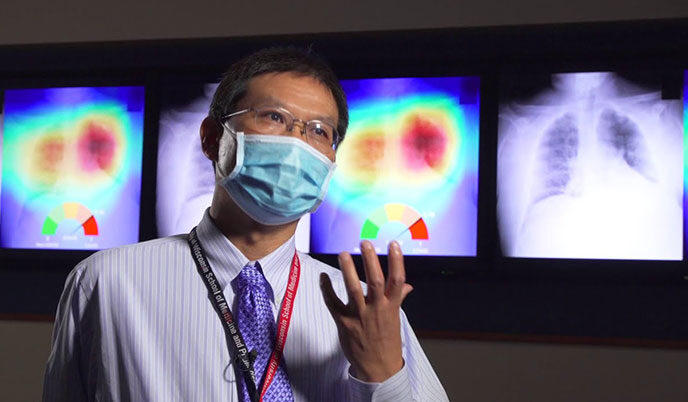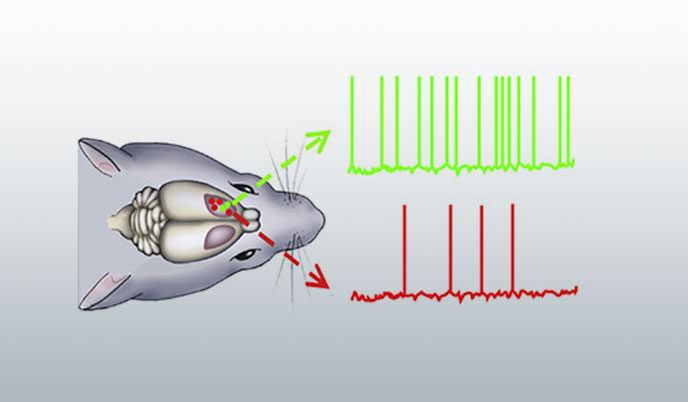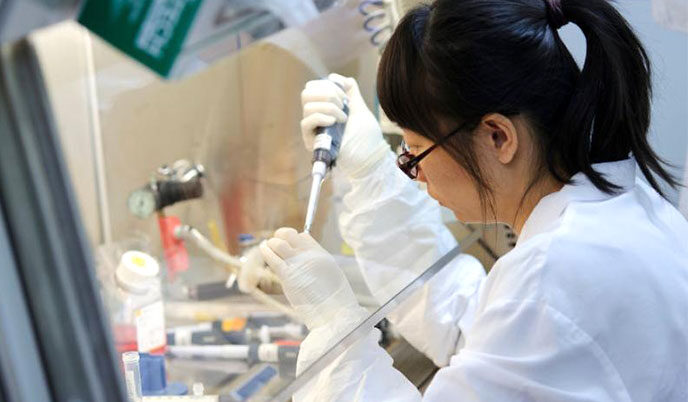
UW studies investigate need for and impact of culturally aware mentorship training
Higher education institutions frequently offer mentored research experiences to increase undergraduate student interest, motivation and preparedness for research careers in Science, Technology, Engineering, Mathematic and Medicine (STEMM) fields.

UW researchers find more precise way to detect pneumonia caused by COVID-19
Using cutting-edge artificial intelligence technology, UW‒Madison investigators have developed a far more precise way to identify cases of COVID-19 induced pneumonia.

Janis Tupesis inducted into the Order for the International Federation of Emergency Medicine
Janis Tupesis, MD, was selected for induction into the Order for the International Federation of Emergency Medicine in 2020, an honor given to an individual in recognition of their extensive and continuous contributions to emergency medicine in their own country and internationally.

UW study looks to keep nursing homes safe during COVID-19 pandemic with telehealth
A new research study at the University of Wisconsin School of Medicine and Public Health seeks to reduce COVID-19 spread in Wisconsin nursing homes by collaborating with community and academic partners to expand telehealth infrastructure.

UW Health, School of Medicine and Public Health remove race from kidney function estimation formula
As part of their efforts to address systemic racism in medicine, UW Health and University of Wisconsin School of Medicine and Public Health are calling for an approach to assess kidney function devoid of race.

Stem cells can repair Parkinson’s-damaged circuits in mouse brains
The mature brain is infamously bad at repairing itself following damage like that caused by trauma or strokes, or from degenerative diseases like Parkinson’s. Stem cells, which are endlessly adaptable, have offered the promise of better neural repair. But the brain’s precisely tuned complexity has stymied the development of clinical treatments.

Thriving community of postdocs play valuable role in campus research
National Postdoc Appreciation Week may have only been five days long, but postdoctoral trainees’ profound impact on the University of Wisconsin School of Medicine and Public Health, and the entire university, is on display year-round.

Sue Wenker receives Joan M. Mills and Distinguished Educator awards

Howard Rowley receives 2020 Gold Medal from American Society of Neuroradiology
Howard Rowley, MD, has been awarded the 2020 Gold Medal by the American Society of Neuroradiology. This award honors exceptional service and achievement in neuroradiology and recognizes Dr. Rowley’s many contributions to stroke trials, dementia research and advanced imaging techniques, as well as what is perhaps is greatest contribution—his gift for teaching and his ability to distill complex topics into manageable and memorable information.

Nanoparticle system captures heart disease biomarker from blood for in-depth analysis
Researchers at the University of Wisconsin–Madison have developed a method combining sticky nanoparticles with high-precision protein measurement to capture and analyze a common marker of heart disease to reveal details that were previously inaccessible.

Darcie Moore selected as 2020 Vallee Scholar in recognition of research
Darcie L. Moore, PhD, assistant professor of neuroscience, has been named by the Vallee Foundation as a 2020 Vallee Scholar. The award provides $300,000 in funding for basic biomedical research over four years.

UW–Madison Alzheimer’s researchers well-represented at annual conference
Researchers from the Wisconsin Alzheimer’s Disease Research Center, Wisconsin Alzheimer’s Institute, and the University of Wisconsin School of Medicine and Public Health shared new dementia research at the virtual 2020 Alzheimer’s Association International Conference, July 27 to 31.